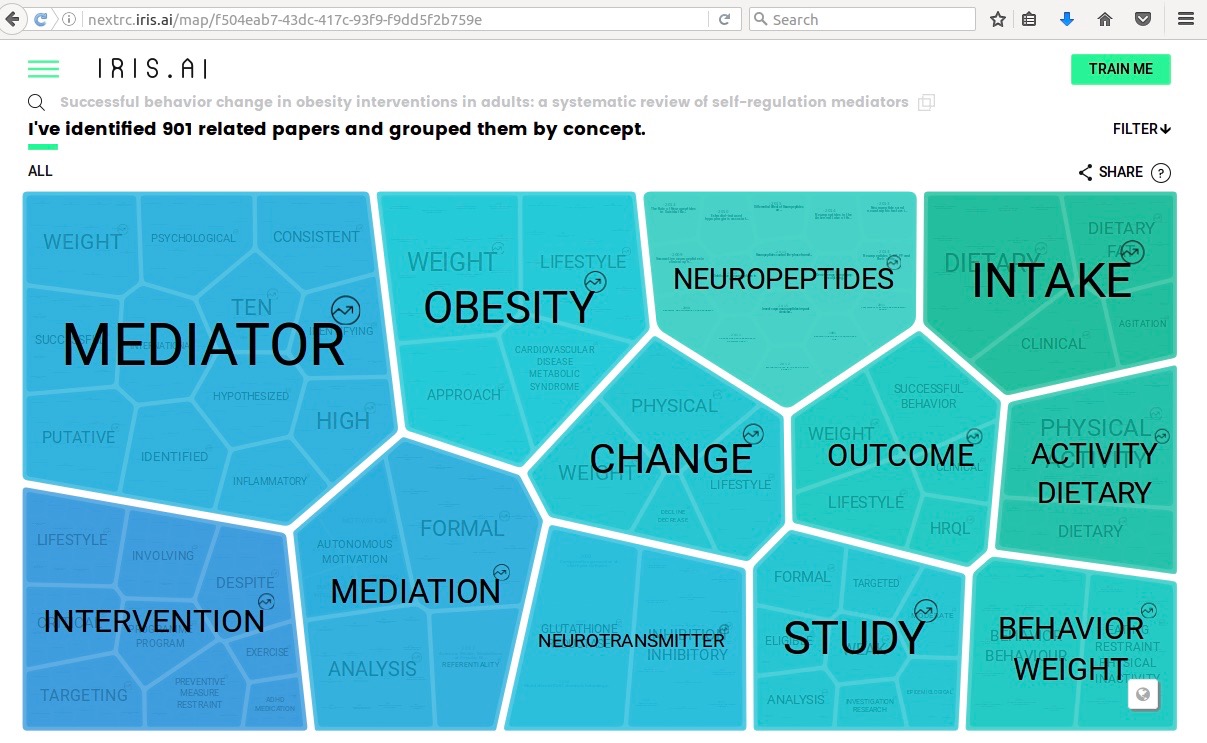Using Iris.ai to discover better ways to achieve healthy lifestyles
Addressing the challenge of achieving healthier lifestyles
Last week, we were at the Lapland University of Applied Science, in Finland, where we held a Science Hackathon in collaboration with Hotus and Skhole Oy. The goal of this intensive day long research sprint was to identify the most effective interventions to sustain healthy lifestyles in healthcare. During the sprint, teams of students and researchers collectively sourced over 200 research papers. As a single source, Iris.ai accounted for more than half of all papers. The final results showed that the more time the team spent using Iris.ai, the better it performed during the Scithon.
Each year noncommunicable diseases (NCDs) kill roughly 38 million people, according to World Health Organization estimates. We are well informed about the cause of those deaths, which are driven primarily by four major lifestyle factors: 1) tobacco use, 2) lack of physical activity, 3) the harmful use of alcohol and 4) unhealthy diets. Howeve, we lack extensive information on the most impactful health care interventions to prevent NCD’s.
Working in collaboration with WHO, Hotus, the nursing research foundation, and Skhole, a healthcare eLearning platform, strive to produce reputable evidence-based frameworks and teaching materials to better inform clinical decision-making. NDC’s are one of the major areas of focus for both organisations. Therefore, to accomplish impactful frameworks, researchers devote countless hours to analyzing hundreds of research articles, a daunting task for human minds. The artificial intelligence of Iris.ai is optimized for precisely such tasks. This created a great opportunity to co-host a Scithon.
“Our plan is to create a nursing guideline and evidence summaries related to impacting lifestyles in healthcare. I think that the results from the Scithon are a great starting point for that work. We will use the material as one of the sources for the drafting process.” — Virpi Jylhä Researcher, Hotus Nursing Research Foundation
At the Scithon, seven teams comprised of cross-disciplinary students, researchers and professionals gathered to identify impactful measures that enable healthy lifestyles. The teams were asked to use Iris.ai exclusively for the first hour and then were welcome to use any outside research tools of their choice. To find the best possible solutions to the problem statement, the teams were evaluated on both qualitative and quantitative fronts. Judges looked at the team’s research strategy, as well as the quality of their findings and insights (e.g., Did they follow current research trends? Was their conclusion well-supported?). Additionally, the number of papers they found, as well as the relevance of those papers, was factored into their scores.
“What surprised me and the other judges was the versatility and the scope of the results. The teams managed to find a wide range of relevant knowledge within a short period of time.” –Virpi Jylhä Researcher, Hotus Nursing Research Foundation

The winning team, Mindhack, concluded that change is a process, not an event. The team is comprised of Annika Lehmus-Sun, a Master student at the University of Helsinki, Johanna Töyräs, a student Nurse at the Lapland UAS and Niko Männikkö, Ph.D. Candidate at the University of Oulu. They asserted that both proper stress management and healthy gut bacteria contributed to a healthier lifestyle. A substantial portion of their conclusion was based on research from Plos One on the combined impact of lifestyle changes in body weight and Jama Internal Medicine’s paper on meditation programs for psychological well-being and stress.
Coming in second was Team Etelä-Savon Digiloikkarit, consisting of team members Santeri Seppälä, Licentiate of Medicine, Mikko Lampi, M.Cs. Information Systems, Anu Salpakoski, Doctor of Health Science, and Pirjo Hilama, a Master student at the University of Eastern Finland. Rounding out the top three was Anagrammi Imperfektissä whose team members included Aarni Karjalainen, Markus Sillanpää and Ville Vilén, all students at Lapland UAS.
Based on the efforts of the seven teams, it was evident that more the maps the team created, the better they fared in the competition. On average teams spent a quarter of the allotted time using Iris.AI, with the winning team spending over half of their time, on the tool. The overall average number of papers found by all teams was about 30 and when looking at the top three teams the average jumps to 48 papers. In total, over 85 research maps were created during the Scithon. The winning team generated the highest number of maps, 18, further proving that the increased use of Iris.ai increases research productivity.